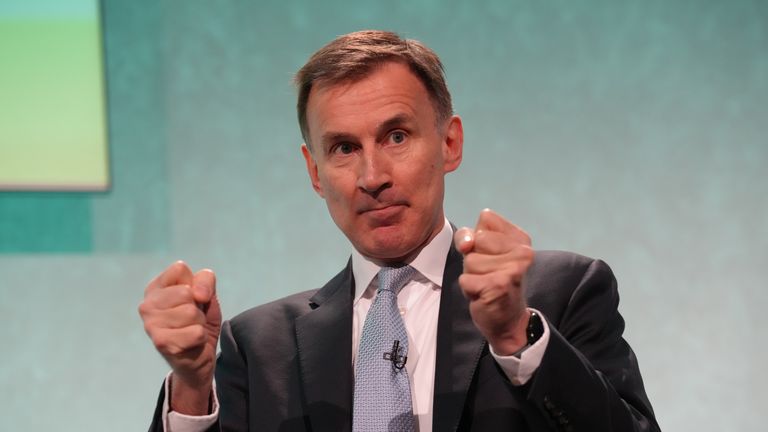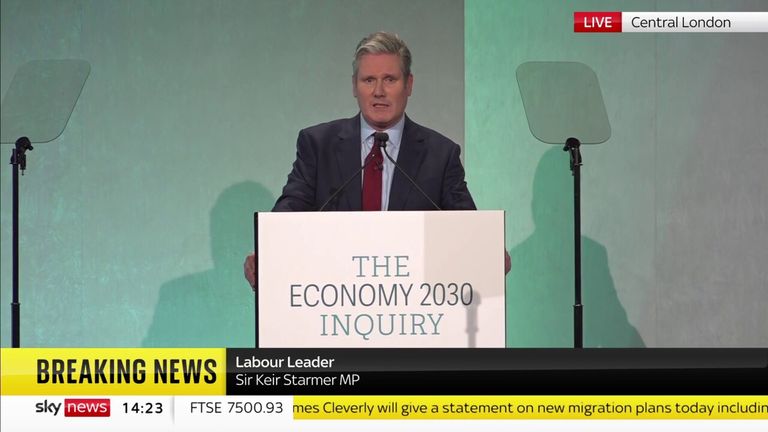Blueprint for ending UK’s economic stagnation has a glaring omission


If you want a sensible document with some interesting and well-reasoned ideas for what we ought to do about the UK economy (and some brilliant charts), you could hardly do better than read the Resolution Foundation’s book/report on the topic, Ending Stagnation.
It’s a thick tome with plenty of analysis about the problems facing this country – low earnings growth, weak productivity, high inequality and so on – and a bit about our strengths too. And it synthesises much of what you might call the “Whitehall view” about what needs to be done to try to kickstart growth in the economy.
So it suggests raising benefits, lifting public investment, removing some of the countless allowances which allow people to avoid taxes, improving statutory sick pay and trying to lift cities outside London.
It’s a useful checklist, even if much of it will be vaguely familiar to anyone who has followed the economic debate in recent years.
Weak productivity is one of Britain’s biggest problems. If our bang-for-buck (which is ultimately what productivity is a measure of) had been stronger in recent years, then a lot of issues we’re currently plagued with – from high public debt to weak income growth – could have been solved.
And while there’s a good chance this document becomes a sort of Bible, which both Labour and the Conservative Party borrow from, as they seek to construct their policy manifestos ahead of the coming general election – it is not for nothing that both Chancellor Jeremy Hunt and Labour leader Sir Keir Starmer both appeared at the launch event.
Both parties want this election to be fought on economic grounds.
Both parties want the British public to know that they want to increase Britain’s economic growth rate. Indeed, Starmer has even pledged that under Labour, UK per capita growth will outpace the rest of the G7 in the coming years – an ambitious promise, though it’s unclear how he or anyone could achieve it.
And that’s because while there are some obvious ingredients for economic growth, it’s a fiendishly difficult thing to generate, or for that matter to understand.
Advertisement
Please use Chrome browser for a more accessible video player

1:29
Starmer: ‘This is an age of insecurity’
Reservations about the report
Economists still debate why the US has a perennial productivity advantage over so many of its rich world counterparts. Is it tax policy? Does it come down to investment incentives, to the existence of strong markets, or to something else completely unquantifiable? The short answer is no-one knows for sure.
But if you’re after a decent handbook of some of the most plausible policies for boosting that growth rate, you could hardly do better than the Resolution Foundation’s tome – with a few reservations.
The first is that, this being a left-leaning thinktank, the solutions do incline towards higher taxes. Others will have different views.
Second, while the report suggests government should be investing more and mentions the need for more housebuilding in passing, it could put even more emphasis on the desperate deterioration of Britain’s physical infrastructure.
Third, and most problematic, one of the most important of all economic factors barely crops up in the report at all: energy. Britain has some of the developed world’s highest energy costs.
This is at least part of the explanation for weak productivity and investment in recent years. Bringing down wholesale energy costs would make an enormous difference in boosting activity in this country – not just for manufacturing firms but also for everyone else.
This comes back to something else. It’s tempting, since Britain’s stagnation began at the time of the financial crisis, to assume that it must all be related to what happened in the square mile back in 2008. And this is almost certainly a large part of the explanation.
Read more business news:
Tougher visa rules for foreign workers announced
Man Utd and Ratcliffe to confirm stake sale next week
Warning over fake Wonka and Prime-branded chocolate bars
However, something else happened around then too: Britain went from being a net oil and gas exporter, able to enjoy a large and constant stream of public and private revenues from the North Sea, to being a net importer. It’s going way too far to blame this watershed shift for everything, but it’s equally odd that it isn’t mentioned even once in the Resolution Foundation document.
It all matters, even the boring stuff we mostly ignore. This new document is a fascinating blueprint on some of the things we could do to get this country going again.
But it’s just the beginning of the conversation – not the end of it.